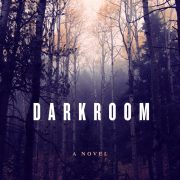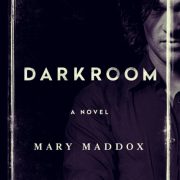 If you hang around Amazon’s Kindle store, you probably know that many customers are pissed about the higher prices of Kindle books. They grouse endlessly in various community forums and spit invective at Amazon, at publishers, even at writers. Now their protests have found another outlet. Furious that the Kindle edition of Michael Connelly’s latest thriller cost more than the discounted hardcover on Amazon’s Web site, readers began posting one-star reviews of the Kindle edition. They made no pretense of having read The Fifth Witness. Most conceded they love Connelly’s novels. But they felt something must be done to make Amazon and Connelly’s publisher, Little, Brown and Company, take heed.
If you hang around Amazon’s Kindle store, you probably know that many customers are pissed about the higher prices of Kindle books. They grouse endlessly in various community forums and spit invective at Amazon, at publishers, even at writers. Now their protests have found another outlet. Furious that the Kindle edition of Michael Connelly’s latest thriller cost more than the discounted hardcover on Amazon’s Web site, readers began posting one-star reviews of the Kindle edition. They made no pretense of having read The Fifth Witness. Most conceded they love Connelly’s novels. But they felt something must be done to make Amazon and Connelly’s publisher, Little, Brown and Company, take heed.
A couple of years ago, the price of a new release on Kindle was $9.99, far less than half the cost of the hardcover. This price was set not by publishers but by Amazon. The online retailer took a smaller profit (or perhaps even a loss) in order to sell more Kindles. “Look!” Amazon told customers. “Buy a Kindle and never pay more than $9.99 for a book!” Then publishers rebelled. When Apple launched iBooks, they had another venue for their ebooks and threatened to withhold their lists from Amazon unless they determined the price. Amazon capitulated but accompanied the higher prices with the message “This price was set by the publisher.” In other words, don’t blame them for breaking the promise they made when they sold you a Kindle.
By the way, The Fifth Witness now costs $12.99 as a KIndle book, still less than half the full retail price of the hardcover and less than Amazon’s discounted price.
As a writer I have some sympathy for Connelly and other bestselling authors targeted by the protest. Not that they need my sympathy, they’re doing just fine, thank you. Still, the unfairness of those reviews must sting a little. Today I posted a brief review of The Fifth Witness on Amazon, giving it one more star than it deserved to compensate for the many undeserved low ratings.
I have less sympathy for Little, Brown and Company. Commercial publishers style themselves as “gatekeepers” who make sure only quality books are offered to readers; in fact they publish whatever they judge will sell. I once had lunch with an editor at a large publishing house who told me so, bluntly. For a long time traditional publishers have had a monopoly on book publishing, but new technologies are changing things. My dark side is gratified at seeing the arrogant, inbred, weaselly bastards scramble.
Nor do I have much sympathy for Amazon, though the company has always been courteous and fair in its dealings with me. Amazon plays hardball with publishers. They can hardly be surprised when publishers do the same.
In the end, two things determine the price of ebooks: what its costs to produce them and what readers are willing to pay.
Many people argue that ebook prices should be low because unlike hardcovers and paperbacks they cost next to nothing to produce and distribute; only a royalty to the author must be paid. This might be true if you ignore the many expenses of running a business – maintaining office space, paying editors, etc. It seems reasonable to include these expenses when determining what it costs to publish an ebook.
Blow aside their smoke about championing literary quality and nurturing writers and it’s clear publishers are in business to make a profit. Of course they charge what the market will bear. Of course they resist when retailers lower prices to undercut competition and promote sales of other merchandise. And there’s this: the longer readers expect ebooks to cost $9.99, the more difficult it becomes to raise the price. Seeing the long-term stakes, publishers fought hard to wrest control of the pricing from Amazon.
The market for ebooks has created a new economic model, and readers are a major force in shaping what it becomes. When enough readers buy ebooks instead of going to the bookstore, bookstore chains like Borders file for bankruptcy. As bookstores close, Internet retailers acquire a larger share of the market, allowing them to raise prices – up to the point where readers refuse to pay. Those customers protesting the price of The Fifth Witness on Kindle claim that bogus one-star reviews are the only way to voice their outrage. But there’s another way that’s fairer (though less emotionally satisfying). Just don’t buy the book until the price goes down.
By the way, my novel Talion can be downloaded from the Kindle store for only $2.99. (See the link below.)











Leave a Reply
Want to join the discussion?Feel free to contribute!